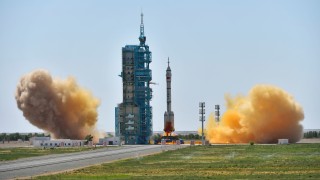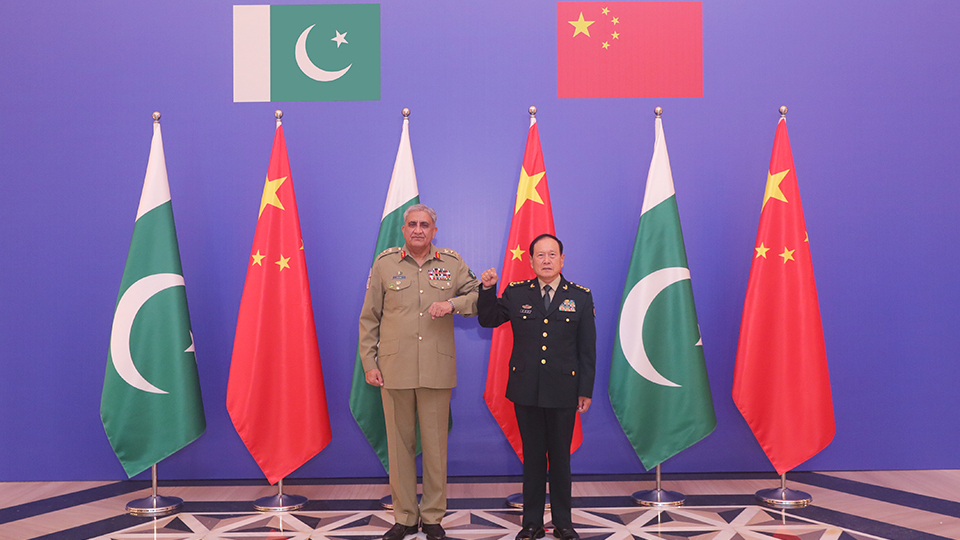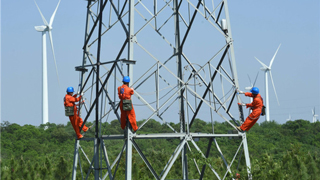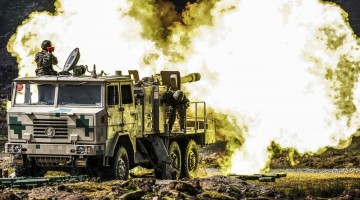By Wang Shida
US President Joe Biden made astonishing remarks at the reception of the Democratic Congressional Campaign Committee (DCCC) a few days ago. He said that Pakistan has "nuclear weapons without any cohesion" and may be "one of the most dangerous nations in the world". In his speech, Biden also exaggerated that the threat of nuclear war caused by the Ukraine crisis is "at the highest level since the 1962 Cuban Missile Crisis." This remark also caused huge controversy. Washington has frequently created nuclear fears recently but what is its real intention?
The relationship between the US and Pakistan has not been very pleasant in recent years, and the US is the main reason. On the one hand, the Bush and Obama administrations maintained cooperation with Pakistan and took care of Pakistan's sensitivities and concerns to resolve the Afghanistan issue. However, since the Trump administration, the US has continued to adjust the focus of its global national security strategy, shifting from counter-terrorism to major power competition. The Biden administration has inherited and developed the "Indo-Pacific strategy" proposed by the Trump administration, and deal with other countries based on its self-confidence and strength. For this reason, it is necessary for the US to reduce investments in things that are not priorities such as the Afghanistan issue. Against this backdrop, Pakistan's importance to the US has clearly declined.
On the other hand, Pakistan has made great sacrifices in cooperating with the US in its war on terror. The war in Afghanistan has cost Pakistan tens of thousands of casualties and tens of billions of dollars in damage. However, Washington took anger at Pakistan because of the defeat in the war in Afghanistan and repeatedly accused Pakistan of poor cooperation.
Recently, US-Pakistan relations have improved thanks to the joint efforts of personnel from both sides. However, Biden's remarks about Pakistan's nuclear weapons being poorly controlled and Pakistan probably being one of the most dangerous countries in the world caused an uproar in Pakistan.
Pakistani Prime Minister Shabazz Sharif stressed that Pakistan is a responsible nuclear state, and its national nuclear security is protected by the highest standards. Former Pakistani Prime Minister Imran Khan questioned, "What basis does Biden have to question Pakistan's nuclear security?" "When did Pakistan show aggression compared to the US's involvement in wars around the world?" And Federal Minister for Energy of Pakistan Khurram Dastgir Khan accused Biden of baseless. All these reveal Pakistan's anger at Washington's irresponsible behaviors.
In fact, Pakistan is only one part of the puzzle of the nuclear fears pushed by the US. Despite repeated warnings from Russia, NATO is still holding a nuclear deterrence exercise code-named Steadfast Noon on October 17. 14 countries participated in the exercise mainly conducted in the UK, Belgium, and areas near the North Sea. The exercise venue is about 1,000 kilometers away from Russia. Clearly, this nuclear deterrence exercise has heightened the international community's concerns about the nuclear threat.
The US has single-handedly promoted the recent nuclear situations around the world and the real purpose is hidden in Biden's speech at the DCCC reception on October 13 and the new US National Security Strategy released the day before.
In his speech, Biden said that the US is at a "real inflection point in history" and "there’s enormous opportunities for the US to change the dynamic in the second quarter of the 21st century". "Around the world, the need for American leadership is as great as it has ever been. We are in the midst of a strategic competition to shape the future of the international order", said the new National Security Strategy in the preface. "There is no nation better positioned to lead with strength and purpose than the US."
From the above self-judgment of the Biden administration, it is not difficult to see that spreading in security by exaggerating nuclear threats or even creating nuclear threats will help Washington form gangs and drag the world into group politics, alliance confrontation and even military conflict. The US is good at all these dirty tricks. In the process, it can shape a favorable geopolitical pattern and maintain its leadership and national security interests, even if the price is to drag other countries into confrontation or even conflict.
(The author is the deputy director of the Institute of South Asian Studies of the China Institutes of Contemporary International Relations)
Editor's note: Originally published on huanqiu.com, this article is translated from Chinese into English and edited by the China Military Online. The information and opinions in this article do not necessarily reflect the views of eng.chinamil.com.cn.











